Top 10 Reasons to Build a Home Addition Instead of Moving: Building Up Vs. Building Out
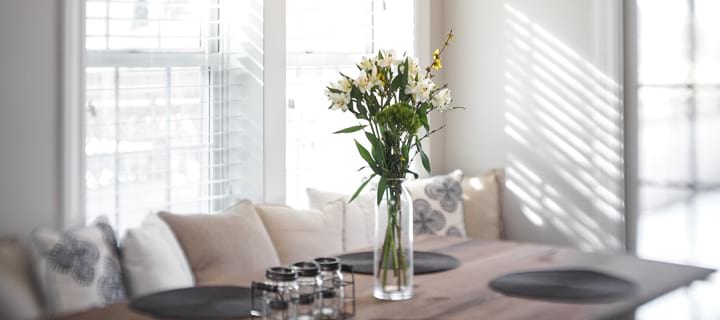
Leaving a beloved neighborhood in search of a home more fitting their needs is not something many homeowners want to do, which is why many have decided to either build up or build out. If you’re in a tight spot where building out isn’t an option, going upward is the route to take. What about homeowners who have the option to build up or out? Is one better than the other? Let’s take a look at all the options and why one might be better than the other depending on each unique situation.
The choices: remodel & stay put or buy a new home & move out?
When a house becomes a home, it’s difficult to pull up and leave, regardless of the reasons prompting a move. However, when a property becomes insufficient for whatever reason, two options come to the table: move or remodel?
On an emotional level, costs really don’t come into the picture. We’ll do what we can to remain in the home we love and near the neighbors who have become extended family. However, a budget can trump emotion and alliances, which means if funds aren’t available to build up or out, moving to a more affordable neighborhood and into a home with all the wants and needs already attached becomes the reluctant choice.
It’s not always that way though – sometimes the neighbors are combative rather than nice and you simply can’t suffer them and their shenanigans any longer. Or, maybe the home simply isn’t suitable because of the livable space, the layout or both. Maybe you don’t like the school district you’re in? These are all great reasons to consider relocating altogether.
Homeowners need to plan carefully for their next step if they decide remodeling is the proper option, which involves budgeting in a realistic manner during the planning phase. The wish list is often shortened considerably at this point. Premium flourishes are downgraded and the some of the luxury items are removed entirely if the budget becomes strained.
Moving vs. remodeling: pros and cons
Buying a new home can be really exciting. Instead of going through a construction process where there might be a lot of noise and mess, you move into a new turnkey home. Unfortunately, the real estate market has been rather insane as of late with home prices going through the roof. These factor in to a decision to remodel instead of move and buy anew.
Remodeling can be an attractive choice for people who definitely like their neighborhood, their home and everything it has to offer. The thought of moving becomes a stressful proposal. The remodel is also bringing a new lease on life to the home, giving it a new look and feel and more usable space that can be just what was needed to improve your quality of life.
The case against moving: pros & cons
There are a number of obviously negative aspects of selling a home, not the least of which are associated with transfer taxes, lawyer fees, realtor fees and closing costs.
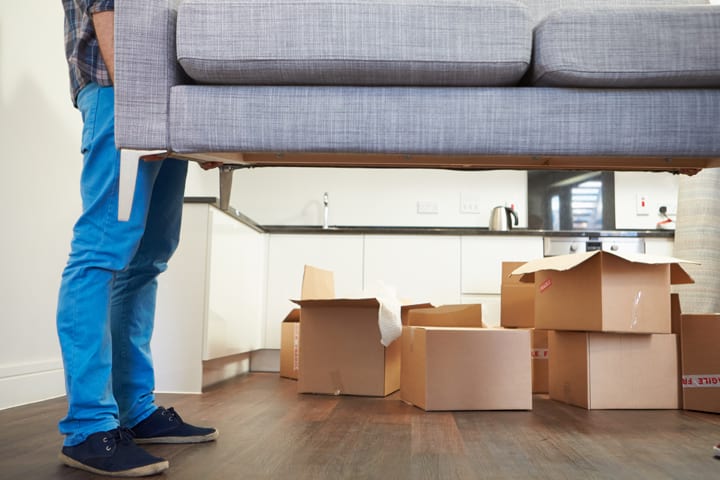
If you’ve got a family, moving can make them feel unsettled, especially if the kids have to change schools. And what about your commute to work? Will it be shorter or longer?
The thought of packing up all your belongings is one of the biggest turn offs. Tack on to that the cost associated with movers.
Advantages of moving:
-
You can physically move your location For some people, selecting a new place to call home is desirable, particularly if the old neighborhood wasn’t exactly working out for them.
-
You don’t have to live in a construction zone If you are put off by construction, you’re not going to want to take on a big remodel, which means moving and purchasing a home becomes far more attractive.
-
You can purchase a home that’s 100% turnkey When you have time to do the research, you might be able to find a home that hits all your wants and needs, and all you have to do is move in to your turnkey property.
-
You don’t have to deal with contractors When you remodel, you have to communicate and negotiate with contractors, and if that’s not your cup of tea, moving and purchasing a new home is definitely the way to go.
Disadvantages of moving:
-
Buying a home can be a time consuming process that adds up to a lot of stress The search for a home is an ongoing struggle until you finally settle on something. But once you find something you like, you might be in a bidding war, which is happening a lot more these days as homes fly off the market faster than ever. It all adds up to a stressful situation.
-
You may not get exactly what you want When you settle on a new home, you’re not really getting what you want. You might have a wish list that is only half met.
-
You may have to leave an area you love If you’re relocating to a new area, you’re probably leaving one you really like. And it takes time to develop a sense of community in a new home, and there is no promise you’ll ever have what you had in your old community.
-
Moving is expensive Cost is a major con with moving and purchasing a new home. Consider all the costs associated with selling your home and buying a new one. Depending on how the realtors work in your area, you could be forking over five or six percent in fees to them.
Remodeling your home: pros and cons
You’ve had your focus on remodeling your home for quite some time now and you are looking forward to bigger spaces that are more functional.

But is the end result worth everything you go through to get there? Let’s take a look at some of the advantages and disadvantages of remodeling.
Advantages of remodeling:
-
You can plan a remodel to meet your exact specifications Rather than build a wish list and settle for a percentage of the items on that list, as you would when purchasing a home, your wish list for remodeling is only limited by your imagination and your budget. Get everything you want and/or can afford in the place you already call home.
-
You may be able to use home equity to pay for the renovations Most homeowners are sitting on a mountain of equity that they can tap in to for their home remodeling project. The bonus is that your home equity loan is most likely tax deductible!
-
If you love your neighborhood, you don’t have to move Remove all the stress of moving and the heartache of leaving the neighborhood you love by remodeling your current home.
- Avoid the cost of moving and selling your home Aside from the mental anguish involved in selling a home, there is a monetary price as well. You have to pay movers. You have to pay realtors and maybe even a lawyer. Save all that money by remodeling.
Disadvantages of remodeling:
-
You’ll probably face some surprise expenses If you’ve ever taken on a small DIY project, you know that there are things that happen that certainly weren’t planned. The same happens with home remodels, only on a larger and more costly stage.
-
You might not get your money back out of your remodel Like many higher end projects, you’re not likely to see all the money you put into a remodel come back to you. While the end result might be completely worth the time and expense, the appraiser probably won’t be as impressed.
-
Remodeling can be a pain It’s a dirty, dusty process, and it’s loud and uncomfortable to live around. However, with the right contractor who respects your space, you should be in good hands.
Home addition – the best solution to resolve your problems
Is your family growing? It’s an exciting development until you realize the space in your home is now at a premium.
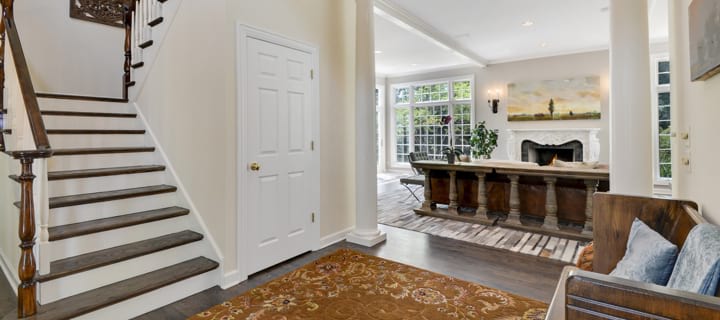
It’s possible to increase your living space without significantly increasing the footprint of your home, and you can do this with a simple room addition. It’s a great solution to getting what you need without having to leave your neighborhood and go through the trouble of selling your home and buying a newer, larger one.
Speaking of selling your home, a room addition is a way to increase the value of the home. It’s an attractive perk that your realtor can use in marketing content, drumming up more interest and enticing people to bid on your home.
In short, adding to your current home makes a lot of sense for most people, given how much money can be saved and how much stress can be avoided if you went through the process of buying a new home.
10 reasons to build a home addition instead of moving
#1. Less Expensive and Less Stressful Than Moving
It’s true. While a home addition requires you to live in a construction zone (to some extent) until it’s completed, it’s much less stressful and less expensive than going through the process of looking for a home, packing your belongings, selling your house and moving to a new neighborhood.
#2. Increase Property Value
A cost-effective home addition can offer some handsome returns for homeowners looking to increase the value of their property. The return is not only monetary; it can be a personal value or value related to marketing the home.
#3. You’ll Obtain Extra Living Space
Whether it’s for extra space for a growing family or just extra room for more activities or entertainment, a home addition is the perfect solution for a family in need for extra living space.
#4. Personalized Space
While many home additions include staples such as bedrooms, bathrooms, living rooms and kitchens, you can also take on a project for personalized space.
A home office is one the more popular requests from homeowners. Sewing rooms, dens and studies are also personalized spaces that are popular. It’s really up to you what you how you use your new space.
#5. You’ll Have Full Control Over the Design
Buying a home usually doesn’t involve getting everything you want. When you take on a home addition project, it’s your baby. As long as you have the budget for it, you can do and get anything you want.
#6. You Can Always Use the Extra Space
As your needs for space evolve, the new addition can step up and meet that new need. An addition originally built as a bedroom can later become a library or a home gym.
#7. It’s More Affordable than Moving
Think about all the expenses and fees involved in selling and buying a home. You won’t see those when you build a new addition, and it’s highly likely that your project is going to cost much less than purchasing a new home.
#8. It Takes Less Time than Buying a New Home and Moving
According to Fannie Mae, the average closing time for a new purchase is 46 days. Now think about how long it took you to find that home, secure financing and get the ball rolling on the purchase. You can have your new addition built and you could be enjoying it in less time (depending on the scope of the build).
#9. Staying Put Makes You More Stable
The thought of having to leave your beloved neighborhood and perhaps even enroll the kids in a new school is not something many people want to go through, but they often do when they have to leave their home for something more suitable.
Building a new addition to your current home negates all that stress.
#10. Vision Fulfillment
You have a vision for your current home. It’s not everything you need right now, but after talking to a trusted design and build contractor, that vision begins to take shape. When the home addition project is finished, you attain vision fulfillment, and it’s a glorious thing.
Building up vs. building out with home additions
There are a number of factors that will influence whether you build up or out. If your yard space is limited, the obvious route is to go up. The type of room you want to build is an influence, as are local zoning laws.
The following are things you should consider about adding a room to your house:
- Cost. Money is on the minds of all fiscally responsible homeowners, and it is generally less costly to build up rather than out. This is because when you build out, you are probably going to be paying for excavation work and pouring a new foundation, which can be quite costly.
- Building out. The perk for building out is that you’re probably able to stay in your home while the work is being done because the work is mostly confined to the new addition, not the current livable space. The same can’t always be said of building up, because that often requires a more intrusive construction process (like cutting into walls and reinforcing support structures on the lower floor).
- Square footage. If you are in a smaller home, you might consider building out instead of up, as you’re less likely to get a more impactful square footage increase by going up.
- Type of room. Most homeowners prefer kitchens to be on the ground floor, so if you’re using your new edition for a kitchen, consider building out on the ground floor. However, if you’re building an addition to be used for a bedroom, going up is a great option.
- Zoning laws. You also have to consider how high you’re able to build, because some areas have restrictions regarding the height of residences. For example, if you have plans for a third floor, your local government might have restrictions on that.
- The addition process. Talk to your design-and-build contractor about what’s best for your situation. They will be aware of the zoning issues and they will take a close look at your property to determine what can and can’t be done and which route you should go.
Building out: extending your home
For homeowners with adequate area to increase their footprint, they will choose to build out into their yards instead of up. This involves installing a new foundation (or slab, depending on the design) and the construction of walls and a roof that will blend with the current home’s roof. If the outward expansion is minimal, there might not be any need to build a foundation, which could save time and money and is another reason for building out instead of up.
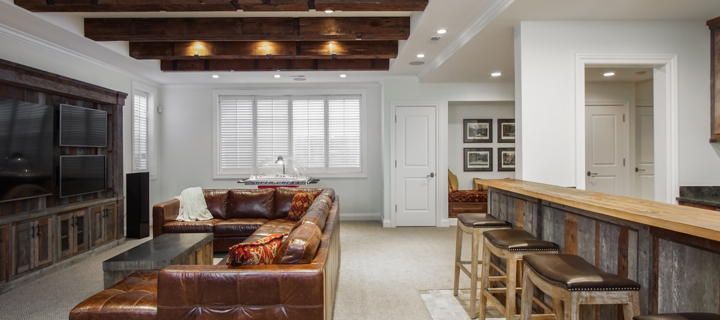
While there is some construction noise and clutter associated with building out, the majority of the home remains inhabitable, and that’s a big plus for families that are not in a position to live in a construction site.
The obvious sacrifice in this situation is that you’re going to lose some of your yard. Also, you have to ensure that you have 7.5 feet of variance (code on distance may differ depending on local laws) between your property and your neighbors’ if you’re going to stay in compliance.
Pros of building out:
- You get more square footage than going up
- The existing home is largely unaffected by the construction
- There is generally more leverage to do extensive builds
- No worry about zoning laws regarding the height of the home
- Smaller additions don’t require a new foundation
Cons of building out:
- You lose yard space
- Building a foundation can be costly
- Property lines can limit how big you go
When you discuss this with your design and build contractor, they’ll have a full list of pros and cons that will help you make an informed decision about building out vs. building up.
Building up: adding another level to your home
Building up, even if it’s a third story on top of the existing two, is the best option when floor space is too limited to give you what you need. Whether it’s a second level on top of a one-story structure or adding a third level to a two-story home, design-and-build contractors can make it happen.
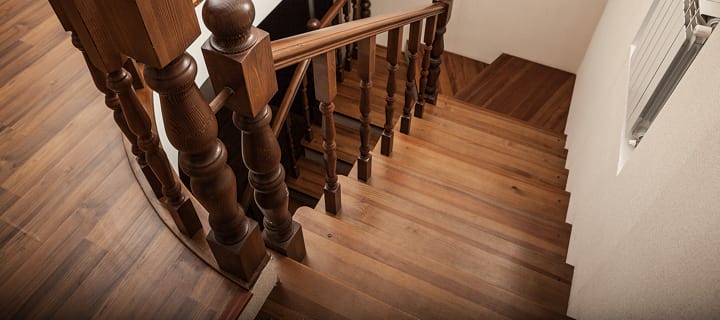
Building up doesn’t always mean adding another level. In some cases, it’s adding large dormers to give you that much-needed space.
Another option is remodeling an attic into a living space. Furthermore, you can also build over the top of garages, which can be retrofitted to include an office, bedroom or guestroom.
The downside to this idea of building up is that some municipalities limit how high a house can be built. And because you’re building up, you need to include the 80 to 120 square feet you’re going to lose with a stairwell installed. Furthermore, building up requires more disruption to the habitable space, which means you’re going to have to find a place to reside while the construction is underway.
Pros of building up:
- You won’t lose any yard space
- No property (yard) restriction setbacks to consider
- If you have a pool, you won’t have to tear it out
Cons of building up:
- Zoning restrictions can hamper your building height
- Staircases can take up a lot of square footage
- Construction noise and clutter is often all-consuming, requiring residents to move out over the duration of the project
Your design and build contractor will weigh all the options and give you all the information you need to make an informed decision about your home addition plans.
Bring in a trusted design-and-build contractor
If you’re considering a home addition, you probably have a full list of questions that deserve expert answers. At New Concept 180, we are a design-build team of professionals that are the go-to leaders in home addition projects, including building up and building out.
Contact us and let’s talk about your needs, your ideas and your vision for your new space. We have plenty of experience working with homeowners just like you, so we will have ideas compliment your current vision.
Our team consists of every type of professional that’s needed on a residential addition project. Each phase of the project is handled seamlessly from designers, who will work directly with you to make sure everything on your wish list is covered, to the builders, who will complete the project according to your vision.
Check out our reviews page to see what people are saying about our work.









